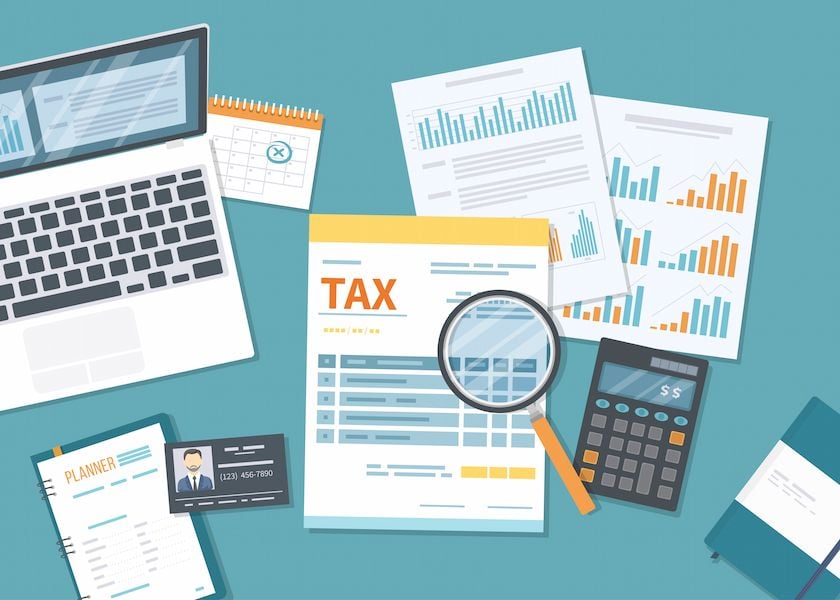401(k) plans are usually thought of as an employee benefit—but for employers, they can also be a powerful tax-planning tool. In particular, 401(k) plans allow businesses to deduct certain plan contributions as a business expense, reducing taxable income while supporting employee retirement savings.
This article walks through how much employers can deduct for 401(k) contributions and the timing rules that determine when those deductions are allowed. Understanding these rules can help you maximize deductions, reduce taxes, and strengthen retirement benefits for your employees.
Deduction Limits for 401(k) Plan Contributions
To understand how much can be deducted, it helps to distinguish between employer contributions and employee elective deferrals. Only employer contributions are subject to a deductibility limit, while special rules apply to self-employed individuals.
Employer Contributions
Employer contributions include matching contributions, non-elective contributions, and safe harbor contributions. In general, the maximum deduction limit for employer contributions is 25% of total compensation paid to all eligible employees. This 25% limit applies only to employer contributions and does not include employee elective deferrals.
Example:
Liz owns a small business with total eligible payroll of $600,000, including $200,000 of her own compensation. Her business can deduct up to $150,000 in employer contributions for the year ($600,000 × 25%).
There is no individual deduction limit per employee. However, deductible contributions must be allocated among eligible employees according to the terms of the plan and must satisfy applicable nondiscrimination requirements.
For example, if permitted under the plan and testing rules, Liz could receive up to the annual §415 limit ($70,000 for 2025), even though that amount exceeds 25% of her individual compensation.
|
Total Eligible Payroll |
Deduction Limit |
Maximum Deductible Amount |
Liz’s Allocation* |
Remaining Deductible Amount |
|
$600,000 |
25% |
$150,000 |
$70,000 |
$80,000 |
* The 25% limit applies in aggregate and does not restrict the amount any one participant may receive under the plan.
Employee Elective Deferrals
Elective deferrals are amounts employees elect to have withheld from their compensation and contributed to a 401(k) plan—rather than paid to them directly as wages—on a pre-tax or Roth basis. Like wages, elective deferrals are fully deductible by the employer and do not count toward the 25% deduction limit for employer contributions.
Continuing the example above, assume Liz is over age 50 and defers the maximum amount for 2025—$31,000 (including a $7,500 catch-up contribution). Her elective deferral, along with deferrals made by other employees, does not reduce the $150,000 employer contribution deduction limit.
|
Total Eligible Payroll |
Deduction Limit |
Employer Deduction Limit |
Liz’s Elective Deferral |
Remaining Employer Deduction |
|
$600,000 |
25% |
$150,000 |
$31,000 |
$150,000 |
Special Rules for Self-Employed Individuals
Owners of sole proprietorships, partnerships, or LLCs taxed as either are considered self-employed individuals for 401(k) purposes.
For these individuals, the employer contribution deduction limit is based on earned income, which generally includes employer contributions for the year but excludes elective deferrals. Because earned income depends on the contribution itself, calculating the deductible amount can be circular.
Your 401(k) provider and CPA should coordinate to ensure contributions and deductions are calculated correctly.
Deduction Timing for 401(k) Plan Contributions
Once you know how much can be deducted, the next question is when the deduction is allowed. To deduct contributions for a given tax year, they must be deposited within specific deadlines. As with deduction limits, the timing rules differ for employer contributions and elective deferrals.
Employer Contributions
Employer contributions are generally deductible for a tax year if they are made by the due date of the employer’s tax return, including extensions.
To claim the deduction:
-
- The contribution must be treated as allocated to that plan year, and
- The contribution must be deposited by the tax filing deadline, even if the return is filed earlier.
Example:
Liz’s business is an S-corporation with a safe harbor 401(k) plan. The required safe harbor contribution for 2025 is $18,000. To deduct that contribution for 2025, it must be deposited by March 15, 2026, the S-corp tax filing deadline. If Liz extends the return, the contribution can be deposited as late as September 16, 2026.
Retroactive Plan Adoption
If a business did not have a 401(k) plan in place by year-end, it may still be possible to adopt one retroactively and deduct employer contributions.
Similar to an IRA, a business can establish a 401(k) plan after year-end and make deductible employer contributions before the tax filing deadline, including extensions, as long as contributions are allocated based on compensation for the prior year and all eligibility and allocation requirements are satisfied.
Example:
Liz’s S-corp did not have a 401(k) plan for 2025. She extends her tax filing deadline to September 15, 2026. Before that date, she adopts a plan, allocates contributions based on 2025 compensation, and deposits the funds by the extended deadline. Those employer contributions may be deducted on her 2025 tax return.
Employee Elective Deferrals
Elective deferrals are deductible in the same tax year in which the compensation is earned and withheld. Employers cannot permit retroactive deferrals on compensation that has already been paid in cash.
Once elective deferrals are withheld from payroll, they must be deposited into the plan as soon as reasonably possible.
Special Rule for Certain Self-Employed Individuals
SECURE 2.0 allows certain sole proprietors to make retroactive elective deferrals to a newly adopted 401(k) plan, subject to strict conditions:
-
- The business has no employees other than the owner;
- The plan is adopted after year-end; and
- Retroactive deferrals are made only for the first plan year.
SECURE 2.0 Tax Credit for Employer Contributions
SECURE 2.0 introduced a tax credit for certain employer contributions made on behalf of non-highly compensated employees. Unlike a deduction, this credit directly offsets taxes owed, but it applies in place of—not in addition to—the deduction for the credited portion of the contribution.
The credit generally applies to employer matching, profit-sharing, or safe harbor contributions made for eligible employees and can equal up to 100% of those contributions, subject to annual dollar limits and phase-outs based on employer size. Contributions made for owners or other highly compensated employees do not qualify for the credit. Any employer contributions not covered by the credit remain deductible under the normal 401(k) deduction rules.
Example:
Liz’s business contributes $20,000 to its 401(k) plan—$5,000 allocated to eligible non-highly compensated employees and $15,000 allocated to Liz. If Liz’s business qualifies for the SECURE 2.0 employer contribution tax credit, the $5,000 employee portion may generate a tax credit of up to $5,000.
That $5,000 is not deductible, but the remaining $15,000 employer contribution may still be deducted as a business expense, subject to the 25% aggregate deduction limit.
Some Basic Education Can Mean Big Tax Savings!
401(k) plans provide valuable tax benefits for both employees and employers. One of the most powerful benefits for employers is the ability to deduct plan contributions.
When it comes to deductibility, the rules still boil down to two things: limits and timing. Understanding both—and how newer tax credits fit into the picture—can help you make better plan design decisions, maximize tax benefits, and strengthen retirement outcomes for your employees.





